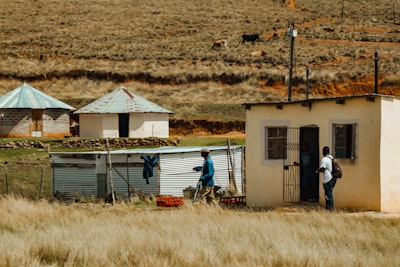Summary
In Lesotho, activist Tšolo Thakeli was arrested after posting a video questioning Prime Minister Sam Matekane's progress on promised job creation. Despite the absence of clear evidence, he was charged with sedition and warned by police not to mention the prime minister’s name again. Thakeli’s arrest generated significant online response and local protests, sparking concern from regional human rights advocates. Unemployment in Lesotho remains high, especially among youth. Thakeli sees himself as a citizen raising critical issues, not a threat, and continues his activism despite official intimidation.
Analysis
The government’s attempt to silence Thakeli illustrates a troubling trend: criticism—even if politely put and focused on issues, not personalities—can bring harsh consequences in fragile democracies. The authorities’ reaction reflects anxiety over losing control of the public narrative, especially as social media offers activists like Thakeli a platform with wide reach among youth. The initial vague charges (“insulting” or “inciting violence”) and the ultimate charge of sedition seem more about intimidation than justice; moreover, threats to Thakeli’s safety by police—by warning they ‘cannot guarantee’ his protection—cast a chilling shadow over legitimate dissent. Such tactics erode public trust and may push more citizens into silence or fuel further unrest.
Critically, Lesotho’s chronic unemployment and lack of clear economic direction leave young people frustrated and vulnerable. Thakeli’s questioning is emblematic of deeper social discontents—and his arrest inadvertently amplified those concerns, as seen in the turnout at job recruitment drives and ensuing public debate. This incident thus exposes both the government’s insecurity and the impassioned desire of citizens for transparency, accountability, and meaningful leadership.
Discussion
Why does this story matter? Lesotho’s episode is simultaneously local and broadly resonant: the right to ask questions and demand accountability is foundational to any democracy. When citizens are repressed for highlighting social pain points—especially non-violently—the legitimacy of democratic processes comes under real strain.
This case also echoes broader regional and global trends, where governments sometimes conflate critique with threat, especially when delivered through new media. It raises essential questions: How far will states go to control online spaces? Is democracy just about voting, or also about open discussion? Where is the line between protecting public order and stifling dissent?
From another perspective, Thakeli’s persistence—using memes, humour, and legal channels—shows the resilience of civic spirit. It also highlights how activism is evolving: digitally savvy, irreverent, and tenacious, yet potentially perilous for those involved. Social media can unify and energize, but also magnify risks for those who stand up.
Ultimately, situations like Thakeli’s push us to reflect on the true measure of democracy: not merely the existence of elections or institutions, but the everyday courage and rights of citizens to speak, question, and be heard—even if inconvenient to those in power.

Comments
No comments yet. Be the first to comment!